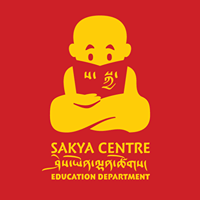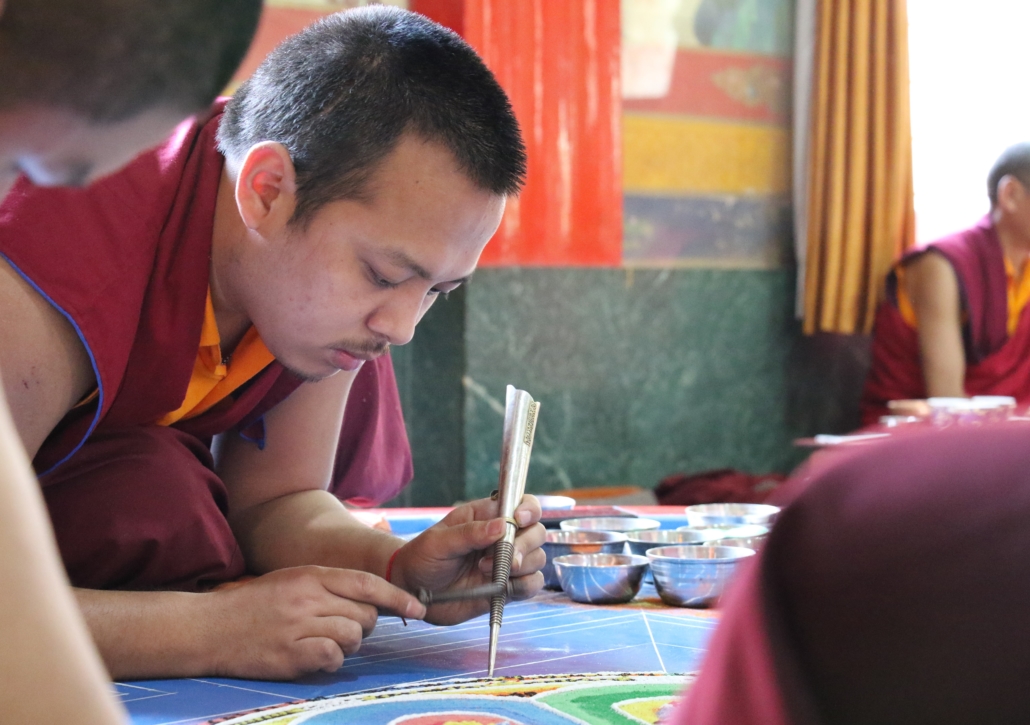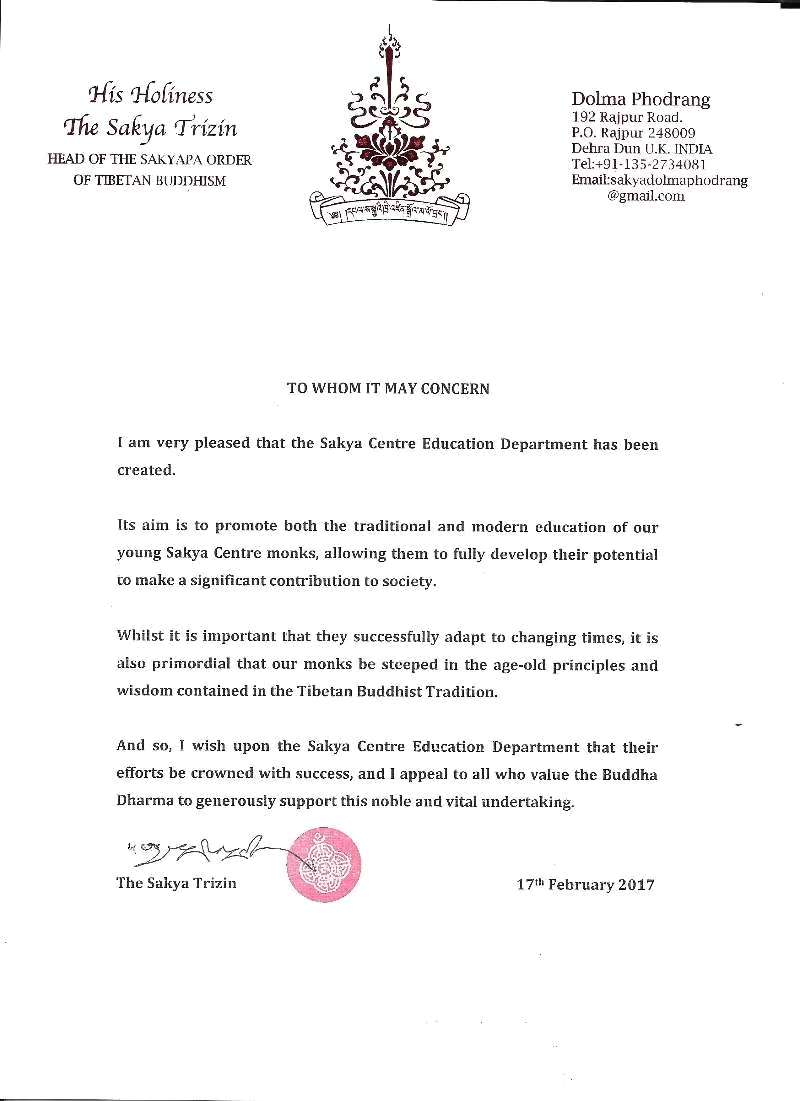In 2017, Saky Centre formally establishes the Education Department in order to tackle the challenges of the rapidly evolving world which we live in today.
The principle aim of the Sakya Centre Education Department is to impart the novices with good Buddhist education, thereby enable the preservation and dissemination of the precious dharma teachings of the Buddha. Another aim is to keep alive the unique teachings and traditions of the Sakyapa masters. With these two main goals, the emphasis of the monastic education is on the learning of Buddhist principles and rituals. The curriculum is updated from the traditional system to include supplemental subjects such as English and Chinese to help the students relate to the external world.
The Current school curriculum is as follows:
– Basic Buddhist rituals Level I (Primary class )
– Basic Buddhist rituals Level II ( Class 1.2.3 )
– Mahavairochana ritual (Class 4)
– Mahakala ritual (Class 5)
– Vajrakilaya ritual (Class 6)
– Chant master for Vajrakilaya drubchoe (Class 7, high level exam for ritual)
– Vajrakilaya supplemental training in ritual music, making of ormnamental offering torma, drawing sand mandala (Class 8)
Examination were held twice a year during October and May for the students aged ten and above. Annually, the senior students also sit for the Vajrakilaya ritual exam during the Sakya centre’s annual Vajrakilaya grand ritual ceremony, typically held in August/September period.
After completing the Vajrakilaya chant master examination (Class 7), these students proceeded to study additional Vajrakilaya ritual and will take examination on its’ ritual music, making of ornamental offering torma, drawing of sand mandala. Their training in the monastery will be fully completed when they perform certain required retreats. On the completion of their ritual studies, the students will have the option to join the Sakya institute of Higher Buddhist Philosophy in Puruwala to further their education.
Lower level students (class 1 to class III) are taught basic Buddhist philosophy.
All students also learn Tibetan grammar, English and Chinese according to their respective levels. All students also attended the weekly optional computer, arts and sports enrichment classes.




